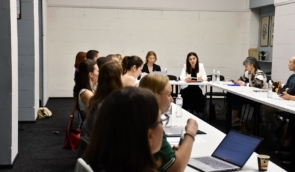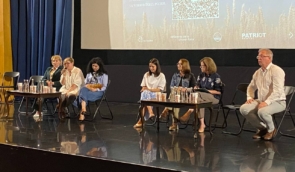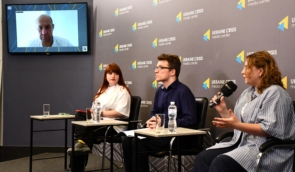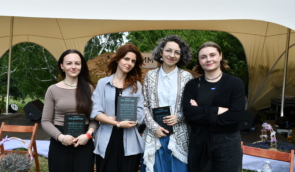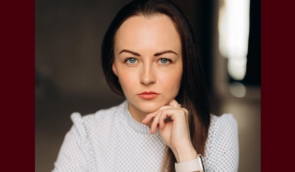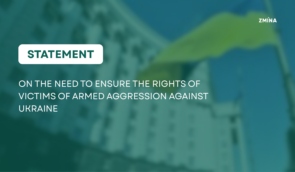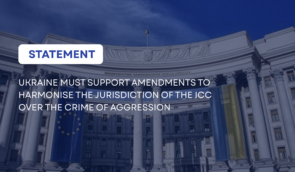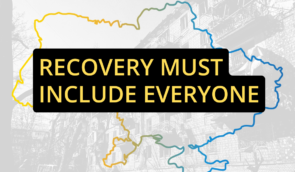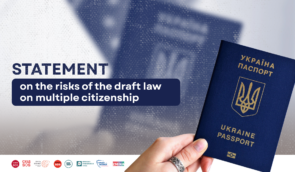Photo exhibition “Stories from occupied Crimea” opens in Dnipro
Twenty-two photos of Ukrainian reporters Alina Smutko, Taras Ibragimov, and Alyona Savchuk are a unique chronicle of life on the peninsula illegally annexed by Russia and documentary evidence of repression against Ukrainian citizens, in particular representatives of the Crimean Tatar people.
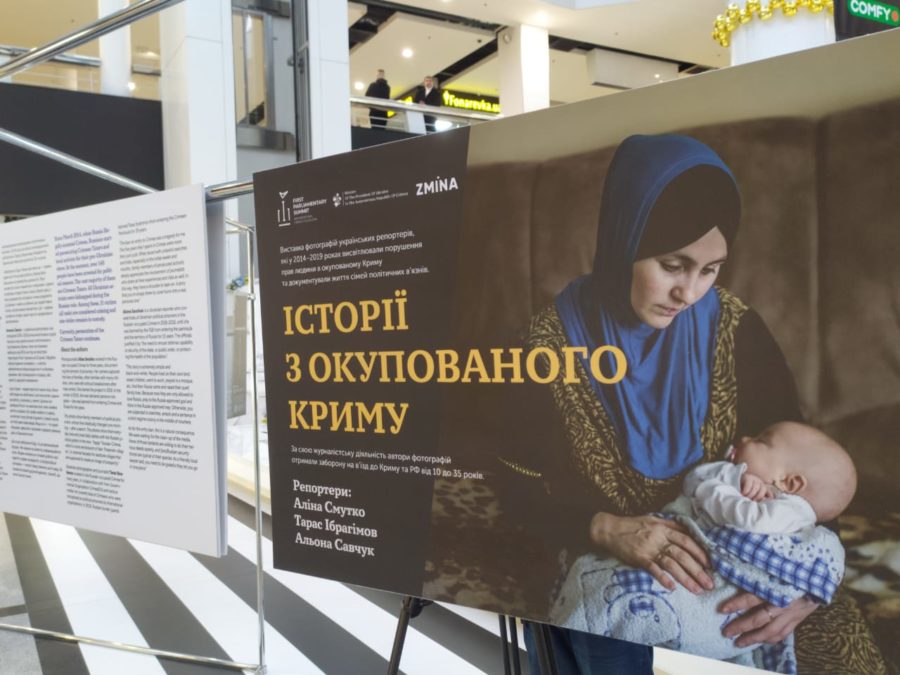
Large-scale persecution began on the first day of the occupation of the Autonomous Republic of Crimea by Russian troops. More than 150 people, most of them Crimean Tatars, have been arrested in many cases for political reasons, 43 Ukrainian activists have been kidnapped, 11 of them are missing, and one man remains in custody.
In addition, the Russian occupying power holds 15 journalists behind bars on politically motivated charges.
“Most of them are Crimean Tatar citizen journalists who cooperated with the Crimean Solidarity initiative which unites families of political prisoners, lawyers, and activists. These are Seyran Saliyev, Marlen Asanov, Tymur Ibrahimov, Server Mustafayev, Osman Arifmemetov, Remzi Bekirov, Ruslan Suleymanov, Rustem Sheikhaliyev. And over the past year, the occupying power imprisoned three more citizen journalists — Iryna Danylovych, Vilen Temeryanov, and Ernes Ametov. Therefore, we can say that every tenth Crimean political prisoner is imprisoned because of his or her journalistic activities,” Iryna Ivanchenko, spokeswoman for Human Rights Centre ZMINA, said during the exhibition opening.
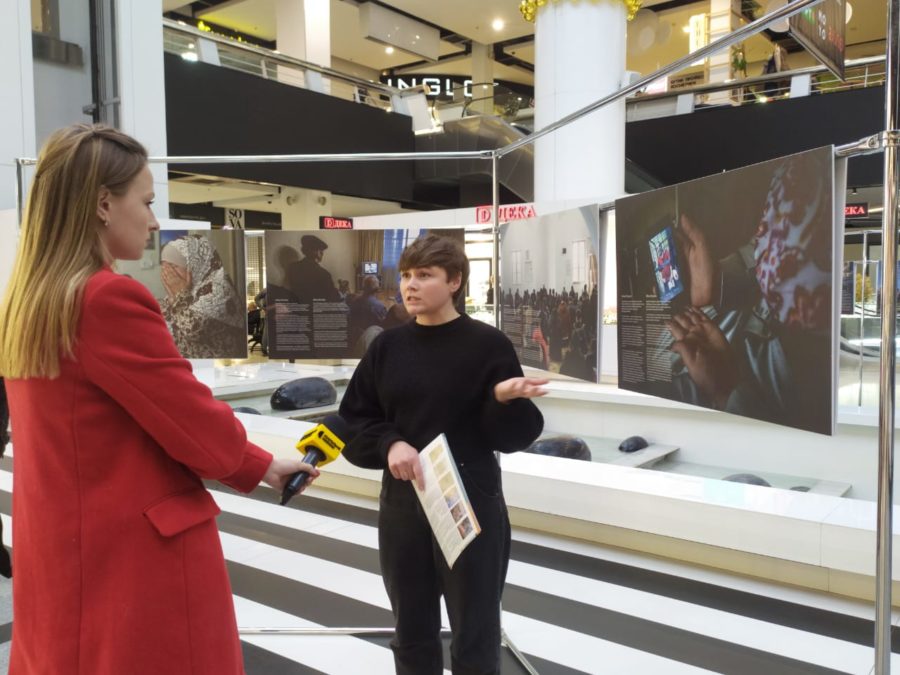 Alyona Savchuk
Alyona SavchukIn 2016-2018, Alyona Savchuk, one of the authors of the photo exhibition “Stories from occupied Crimea”, covered the trials of Ukrainian political prisoners in occupied Crimea until the FSB banned her from entering the peninsula and the territory of Russia.
“These pictures are a small part of all the stories from the occupation that we were lucky to see, hear, and broadcast. These stories are about people who stayed on their native land despite intimidation and threats, arrests and trials, torture and humiliation by (pro)Russian security forces. These are stories about the destroyed destinies of hundreds of families, trumped-up terrorism, persecution based on nationality, religion, and views. But they are also about love for native land and loved ones, solidarity and mutual support, faith in the victory of truth and goodness,” Savchuk said.
The presented photos were taken from 2014 to 2019 when the authors could still travel to Crimea. The Russian occupation administration banned them from visiting the peninsula for a period of 10 to 35 years.
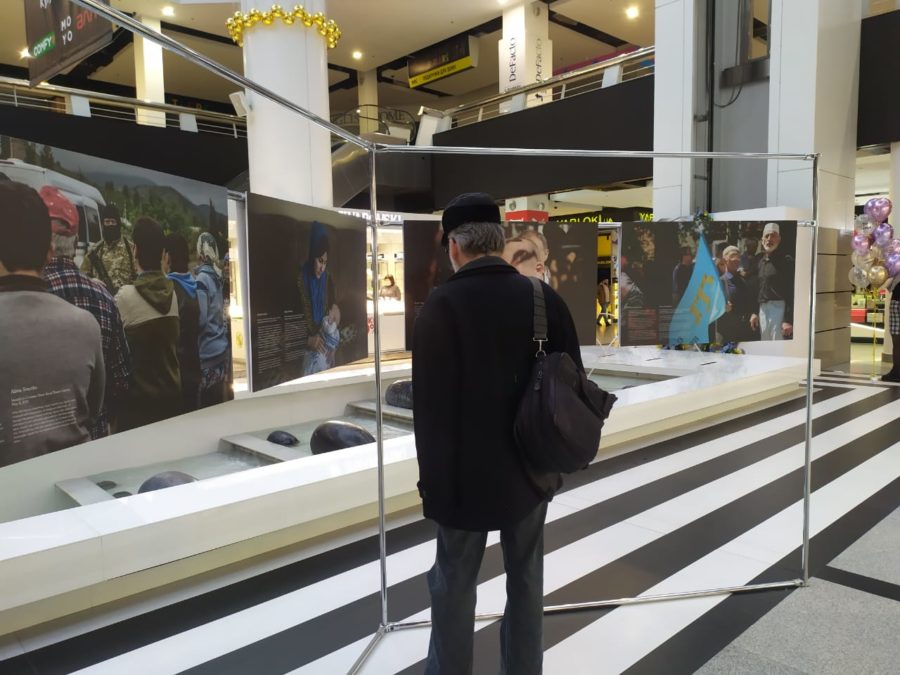
Vladyslav Yesypenko, a freelance journalist of Radio Free Europe/Radio Liberty, is one of the victims of repression by the Russian occupation administration. In March 2021, he was detained by FSB on trumped-up charges and is still in prison. His wife, Kateryna Yesypenko, is fighting for her husband’s release.
“Ahead of the Russian Federation’s full-scale invasion of Ukraine, at least 116 Ukrainian citizens were in prisons in Crimea and in the territory of Russia as part of politically motivated criminal prosecution. The occupation authorities continued to pursue the practice of fabricating criminal cases on ‘terrorist’ and ‘extremist’ articles, charges of participation in illegal armed formations, sabotage, espionage, and illegal possession of weapons or explosives even after February 24, 2022. The total number of political prisoners exceeded 150 people. My husband Vladyslav Yesypenko, a freelance journalist of the Crimea.Realities project, is still behind bars. He was detained while performing an editorial task in Crimea on March 10, 2021. He was found guilty of storing and processing an explosive device,” Yesypenko said.
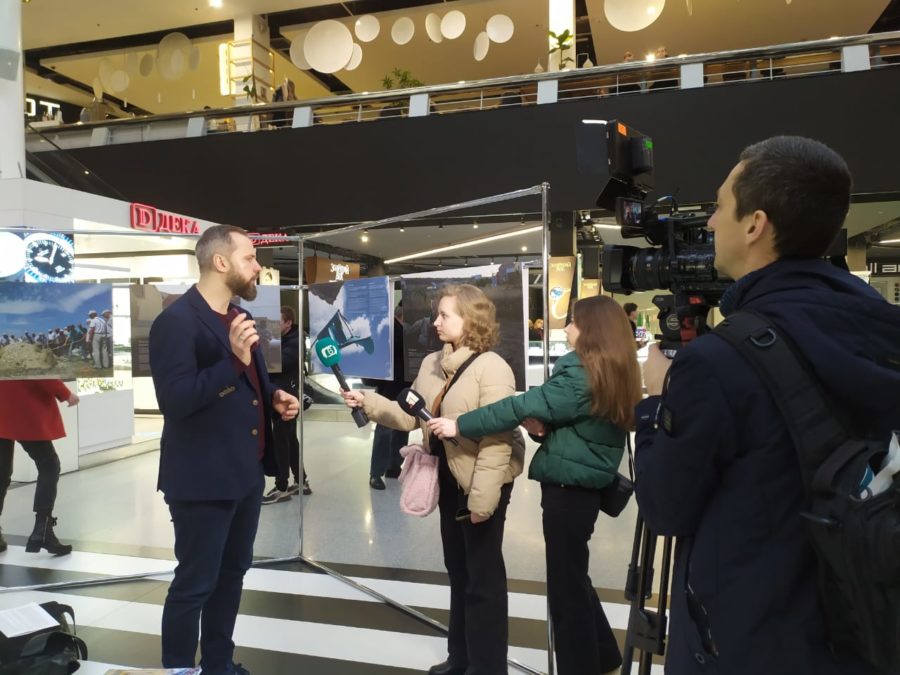 Ihor Kotelianets
Ihor KotelianetsIhor Kotelianets, head of the Association of Relatives of Political Prisoners of the Kremlin, is sure that proper pressure from the world community on the Kremlin could help free our citizens who were imprisoned by the Russian Federation for political reasons.
“The resilience and fearlessness of their civic position inspire Ukraine to fight against the aggressor, and after liberation, they themselves become the shield of the state. Oleh Sentsov, Yevhen Panov, Oleksandr Kolchenko, Roman Ternovskyi, Ihor Movenko, Hennadiy Afanasyev, awarded the hero title posthumously, and other ex-political prisoners who had been released from Russian captivity voluntarily went to defend Ukraine after February 24. Ukraine should promote among partner countries the mechanisms of forcing Russia to unconditionally release Ukrainian political prisoners and civilian hostages. The Cabinet of Ministers should finally adopt all the necessary measures to implement the legislation on social and legal support for hostages and their families. Currently, these categories of citizens remain unprotected, and the state does not implement its basic functions in these matters properly.”
Petro Vyhivskyi, the father of political prisoner Valentyn Vyhivskyi, has also been fighting for his son’s release for many years: “My son has been illegally imprisoned in the Russian Federation for eight and a half years. He and another citizen of Ukraine, Viktor Shur, were charged with espionage and have been in Russian prison the longest — since 2014. Almost all the time, Valentyn is held in a cell-type facility and a punishment isolation cell. After the Russian full-scale invasion of Ukraine started, the detention conditions of Valentyn and other Ukrainians have significantly worsened. There is no consular supervision, the post office does not work, it is not possible to send parcels and transfer funds to the account. The psychological pressure from the guards and cellmates rose. Valentyn is in informational isolation and does not know what is happening in Ukraine now.”
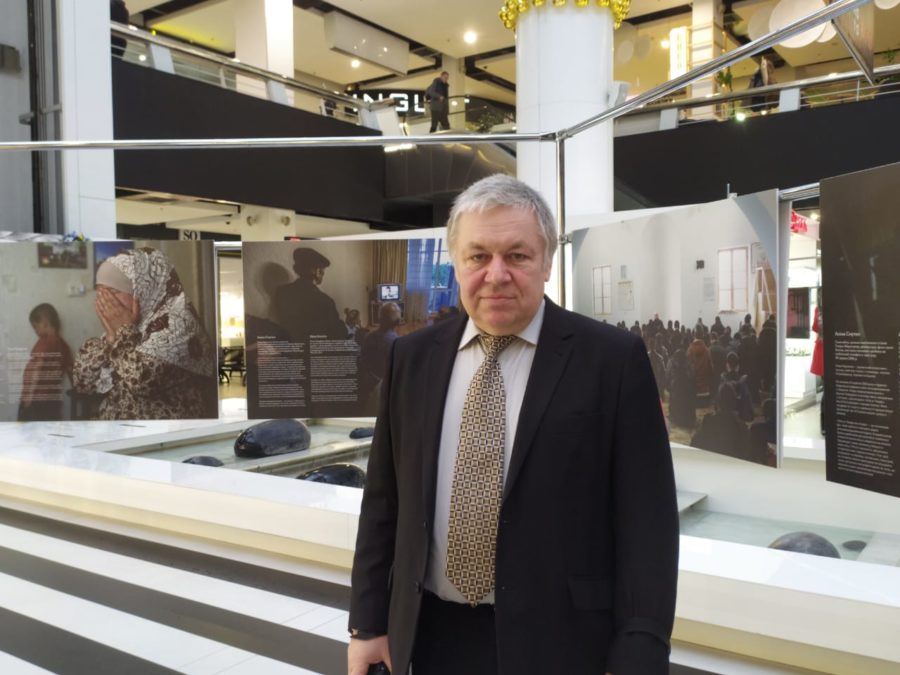 Petro Vyhivskyi
Petro Vyhivskyi“From February 24, 2022, it was important to keep the issue of occupied Crimea in the national and international media environment, and later to convey important and true information about the situation on the peninsula to our citizens living under occupation. We, the Mission team, regularly monitor the situation on the Ukrainian peninsula, prepare weekly updates, which we publish on our own resources and in the mass media. In them, we highlight the issues of persecution of our citizens, militarization of the peninsula, criminal mobilization, propaganda and incitement of hatred by the occupation administrations, the transformation of key narratives, sentiments in society, and movements of resistance to the occupation,” said Yevhen Bondarenko, head of the Information Support Department of the Mission of the President of Ukraine in the Autonomous Republic of Crimea.
Last October, the photo exhibition “Stories from occupied Crimea” was presented at the Parliamentary Summit of Crimea Platform (Zagreb, Croatia), in December – during the solemn events on the occasion of the 30th anniversary of the Mission of the President of Ukraine in the Autonomous Republic of Crimea.
On March 17, the photo exhibition “Stories from occupied Crimea” opened on the first floor of the MOST City shopping mall in Dnipro. It will be available to residents and guests of the city during the week. The press conference on the occasion of the opening took place in one of the halls of the MOST-Kino cinema.
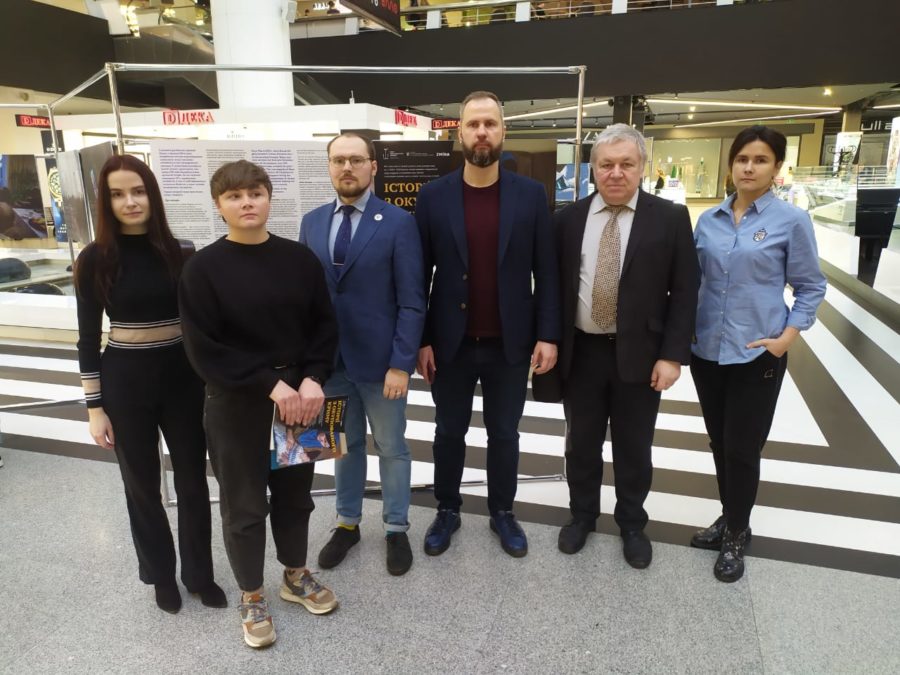
Dnipro became the fourth city where the photo exhibition “Stories from occupied Crimea” was presented. Earlier, it was held in Khmelnytskyi, Kropyvnytskyi, Chernivtsi and will open in Lutsk, and Lviv.
Background
The photo exhibition was created by the Human Rights Centre ZMINA in cooperation with the Mission of the President of Ukraine in Crimea.
If you have found a spelling error, please, notify us by selecting that text and pressing Ctrl+Enter.

